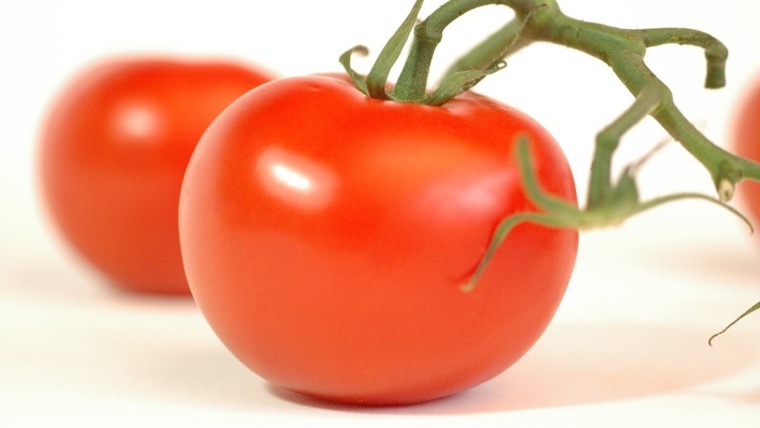
– an intertwined connection!
Written by Adriana Krueger
Do you ever get butterflies in your stomach or a “gut feeling” about something? We were always taught to think this may just be a human function, but numerous studies have found links between the gut and the brain. In fact, the gut affects more than you probably think. Let’s take a look at all the different things your gut can affect and how you can achieve a happy gut.
Studies have shown that there might be a bit more to the idea of a “gut feeling” than previously thought. In fact, your gut is so complex it could be thought of as a “second brain”. This “brain” is hidden in the walls of your gut and is called the enteric nervous system (ENS), which is traversed by around 100 million nerve cells. This nervous system is involved in controlling all digestive processes and some functions of the immune system. Via the gut-brain axis, your gut is in communication with the emotional centre in your brain. So what happens in your gut can affect your emotional wellbeing among many other factors. Therefore, psychological complaints are not only triggered by traumatic life experiences, losses or burnout. The cause of anxiety or depression can often be found in the gut. Chronic stress, improper diet, medication and bad habits affect the gut and thus favour the risk of physical and mental illnesses (e.g. depression or anxiety disorders).
Thus the health of our brain and our digestive tract are intertwined; what goes on in one greatly affects the function of the other.
John Hopkins Medicine says,
“Researchers are finding evidence that irritation in the gastrointestinal system may send signals to the central nervous system that trigger mood changes.”
So how is it all related?
The inner wall of the intestine, the intestinal mucosa, spreads out over an area of 400-500 m2 and houses between 10 and 100 billion intestinal bacteria. These microorganisms together form the intestinal flora. What are the tasks of the intestinal flora and how does damage occur?
Supply of nutrients
The intestinal mucous membrane absorbs nutrients that supply the body with energy. At the same time, fungi, bacteria and other germs are fended off by the immune cells of the intestinal mucosa. If the intestinal mucosa is damaged, germs and bacteria can penetrate and cause inflammation. At the same time, the ability of the intestine to absorb vitamins and minerals is restricted. However, these vital substances are of crucial importance for mental health.
ENS – Enteric nervous system
More than 100 million nerve cells encase the intestine and act as a control centre for smooth digestion. If you are stressed, the brain needs more energy to process the stressful situation and find solutions to it. The brain gets this energy from the intestines. The consequence of this energy-saving is that the movement processes in the bowel slow down. At the same time, the blood circulation deteriorates, which makes the protective intestinal mucosa thinner and the intestinal walls more permeable. (leaky gut syndrome)
Messenger substances
The intestinal mucosa also consists of cells that provide important messenger substances. For example, 95 per cent of the “feel good” hormone serotonin is produced in our intestinal mucosa. Serotonin is widely known as being one of the brain’s “happy chemicals”, because it appears to be able to influence mood. Research shows that high levels of serotonin in the brain are linked to elevated mood and feeling happy, whereas low levels of serotonin are linked to the symptoms of depression, including feeling sad, upset, and generally low in mood. An imbalance of serotonin levels in the brain has also been linked to other conditions such as obsessive-compulsive disorder (OCD), anxiety, panic attacks and anger management issues.
However, if the intestine is inflamed, the body focuses on healing the inflammation. For this, it needs the messenger substance tryptophan, which is also necessary for the formation of serotonin. Thus the serotonin production is reduced in favour of tryptophan production, therefore depleting serotonin levels and affecting our mood.
At the same time, the vital substances necessary for serotonin formation are used to combat inflammation. As a result, the formation of serotonin is sometimes massively restricted. This in turn leads to the fact that the stress hormone cortisol is produced without restriction and floods the body, which can have an adverse effect on the emotional state.
This brief overview of the world of the intestines shows how important a healthy gut for a balanced psyche is. If left untreated, gut problems can easily lead to depression and numerous other ailments.
So how can you maintain a healthy gut?
Make sure you are getting enough Probiotics and Prebiotics
Pro-and prebiotics fulfills important health functions for the human gut. Probiotics are living organisms that live in the gastrointestinal tract. With an appropriate number of germs, they have a health-promoting effect on people. Like all living things, probiotics require nutrition to stay active and healthy so that you can get as much out of them as possible.
That food is prebiotics!
Prebiotics feed Probiotics!
Prebiotics are needed to ensure that Probiotics thrive. The benefits of keeping probiotics alive include aiding digestion and warding off bad bacteria. In short, a healthy gut is a balance of good and bad bacteria whereas an unhealthy gut is caused when the bad bacteria takes over causing all sorts of issues.
Sources of prebiotics include garlic, tomatoes, greens, bananas, berries and asparagus to name a few.
While sources of probiotics include: yoghurt, sourdough bread, miso and fermented foods.
Pro- and prebiotics are also commercially available but should not be seen as a substitute for a balanced diet!
Trying to reduce stress
For the stress hormone cortisol not to affect the gut in a negative way, it makes sense to reduce or avoid stress.
This can be achieved through meditation, exercise, meeting friends, or other fun activities. Anything that is fun and counteracts our stressful everyday life is the way to go. Anything you can do to de-stress a little.
Start including fermented foods in your diet
Fermented foods are fantastic sources of probiotics and include foods such as yoghurt, kefir, pickles, kombucha, sauerkraut, sourdough bread, miso and tempeh.
The psyche and the gut belong together. Mental wellbeing and emotions are influenced by the intestinal flora to a much more intense extent than was assumed for a long time. Research in recent years has shown that the connection between the intestine and the brain runs in both directions, which can, however, make it difficult to explain the cause and effect. Basically, it is therefore advisable to clarify any existing psychological causes and to tackle a comprehensive intestinal reorganization.



